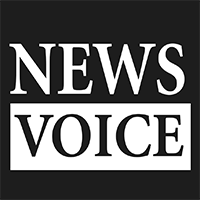 Private industry is extremely well represented among the Beeb’s trustees and directors, from bankers to energy and security firm executives. How does this square with the BBC’s public service remit?
Private industry is extremely well represented among the Beeb’s trustees and directors, from bankers to energy and security firm executives. How does this square with the BBC’s public service remit?
Text: Dan Hind [11 July 2012] | Opendemocracy.net | Republished with permission
The BBC is a corporation established by Royal Charter. The sovereign body is the BBC Trust, which consists of twelve members. There are four members who ”represent” the British nations – Scotland, Wales, Northern Ireland and England and an International Trustee. The Queen appoints all twelve trustees, ”on advice from ministers after an open selection process”.
The Trust is responsible for setting ”the strategic objectives of the BBC”. A separate executive board is ”responsible for the operational delivery of BBC Services and the direction of BBC editorial and creative output”. Seven members of the executive board are BBC staff employees, including Director-General Mark Thompson. Six are non-executive directors from outside the corporation. The Trust appoints the director-general and approves the non-executive directors. The nominations committee and the executive board appoint the rest of the directors.
The Trust and the executive board are governing institutions of the BBC. The twelve trustees, seven executive directors, and six non-executive directors together have enormous power to determine what the BBC does and doesn’t do. Strikingly, they embody the BBC, the British Broadcasting Corporation. In the words of the charter: ”The BBC shall comprise all the members of the BBC Trust and the executive board.”
Whatever one thinks of the editorial culture of the BBC, and its various alleged biases, only seven of the twenty-five people on the Trust and the board are full-time members of staff with responsibility for its day-to-day operations.
Let’s take a quick look at the other eighteen.
Looking at CVs of the 12 trustees [in 2012], a couple of points suggest themselves. The current trustees have strong links with the financial sector. Four of the trustees sit on the boards of banks or private equity companies. The next most prominent sector is energy: two trustees sit on the boards of BP and Northern Ireland Electricity, and one works as a consultant for EDF. Third is private security. One trustee works for Control Risks while Bill Matthews is at the SIA, ”the organisation responsible for regulating the private security industry”.
Aside from trustee Lord Patten, who is a former governor of Hong Kong, the foreign policy establishment is represented by Lord Williams, the International Trustee. He has advised two foreign secretaries and became a Distinguished Visiting Fellow at Chatham House at the same time that he joined the BBC Trust. Chatham House is also known as the Royal Institute of International Affairs. Williams has also worked for the United Nations.
Mehmuda Mian and Richard Ayre have both worked for the Law Society. Ayre is a former broadcaster and has worked in the charitable sector. David Liddiment is also a broadcaster and the only former BBC employee on the Trust. Closs Stephens is the only career academic.
Turning to the non-executive directors of the executive board [in 2012], they are Marcus Agius, Simon Burke, Sally Davis, Dame Fiona Reynolds DBE, Dr Mike Lynch, and Brian McBride. Half of the six – McBride, Lynch, and Davis – have made their careers in telecoms and technology companies. Burke is a chartered accountant who has worked at Virgin and elsewhere. Agius is the only career financier, while Reynolds, who is the head of the National Trust, is the only non-executive director with extensive experience in the not-for-profit sector.
The National Trust is hardly a hotbed of radical democracy. Only half of its council’s 52 members are elected. The other half are appointed ’by organisations whose interests coincide in some way with those of the National Trust’. Nevertheless, it is far more democratic than any of the institutions within which the other non-executive directors have spent their most of their careers. It is also far more democratic than the BBC.
As former cabinet minister Lord Norman Fowler put it in 2005, ”a non-executive on a day-to-day board does seem to be a very difficult concept to get your mind round”. According to Ariel, the BBC’s in-house magazine, the idea appears to be that they ”bring objectivity, experience and expertise – gained over successful careers – to the board, which would assist the executive directors in deciding how best to run the BBC”.
Yet only one of the six – Davis – has worked as a journalist, and none of them spent most of their career in journalism or broadcasting. This is presumably welcome to the executive members of the board, but it makes for a strange kind of oversight.
The preponderance of entrepreneurs and corporate executives as non-executive directors could be seen as an example of what Michael Sandel has called ”market-mimicking governance”. Most of them, impressive though they are, would not look out of place on the board of a large, conventional corporation. This is made more curious when one bears in mind that the boards of BBC Commercial Holdings and BBC Worldwide support the executive board on commercial matters. Quite what an investment banker such as Agius has to offer the BBC, apart from a line in plausible patter, is something of a mystery.
Looking at the non-executives as a group, there is little sense that the board is responsible for the day-to-day operations of a public service institution. The position is in some ways a little better on the Trust, where a few more of the trustees have significant experience of working in the public sector. Nevertheless, a full third of the trustees receive money from the financial sector (Patten, Johnston, Fry and Taverne). Meanwhile, there is no one from the cooperative movement, from the trade union movement, or from any of the more obstreperous NGOs on either of the key institutions.
This is all testament to the forces that have been at work in British public life for a generation. Institutions have been defensible to the extent that they resembled profit-seeking organisations. The BBC has not been under sustained pressure to become more democratic, or to enable more effective political participation in the general population. It has been urged to adopt best practice from the private sector, and to promote the values of an ”enterprise culture”. Its governance, and indeed its output, reflects that pressure.
According to the 2006 Charter, the public purposes of the BBC are:
- (a) sustaining citizenship and civil society;
- (b) promoting education and learning;
- (c) stimulating creativity and cultural excellence;
- (d) representing the UK, its nations, regions and communities;
- (e) bringing the UK to the world and the world to the UK;
- (f) in promoting its other purposes, helping to deliver to the public the benefit of emerging communications technologies and services and, in addition, taking a leading role in the switchover to digital television.
Yet bankers and those with banking interests far outnumber those with experience of promoting democratic citizenship, education or cultural excellence. As for representing the UK’s nations and regions, the current arrangement looks laughable and not just because they sound like a joke.
It is fun to imagine what the BBC would be like with different trustees and non-executive directors. But it would be a mistake to think that the structure is sound and that some changes of personnel are all the institution needs. The government appoints all the trustees, and the trustees in turn appoint the head of the executive board and approve all non-executive directors. Given that the organisation is funded by a compulsory tax on television ownership, this is a remarkably centralised and unaccountable ways of managing things.
In the past decade, new technologies have created remarkable opportunities for people to talk with one another directly. Social media such as Twitter and Facebook have done huge amounts to ”sustain civil society and citizenship”, albeit by accident. WordPress and other blogging sites have made publishing to a global audience so easy that we sometimes forget what an extraordinary change it is. The BBC, however, has shown little sustained interest in creating public spaces where citizenship can be exercised actively, with real-world consequences in the form of an enlivened democracy and better-informed citizenry. Its twenty-five or so members have instead remained committed to a model of centralised control that marginalises dissent and is vulnerable to capture by well organised sectional interests.
There are proposals to reform the BBC’s governance. I have written an open letter to the chairman of the Trust, to suggest how the BBC might be made more responsive to the needs and interests of the people who pay for it. But the debate about the structure of the BBC is only just beginning. One thing is for sure: change is overdue.
About Dan Hind
 Dan Hind is the author of The Threat to Reason: How the Enlightenment Was Hijacked and How We Can Reclaim It, Common Sense: Occupation, Assembly and the Future of Liberty and The Return of the Public: Democracy, Power and the Case for Media Reform. The paperback of The Return of the Public is out now on Verso. He tweets @danhind.
Dan Hind is the author of The Threat to Reason: How the Enlightenment Was Hijacked and How We Can Reclaim It, Common Sense: Occupation, Assembly and the Future of Liberty and The Return of the Public: Democracy, Power and the Case for Media Reform. The paperback of The Return of the Public is out now on Verso. He tweets @danhind.

 NewsVoice är en nättidning för oberoende nyheter, debatt och analys.
NewsVoice är en nättidning för oberoende nyheter, debatt och analys. 
